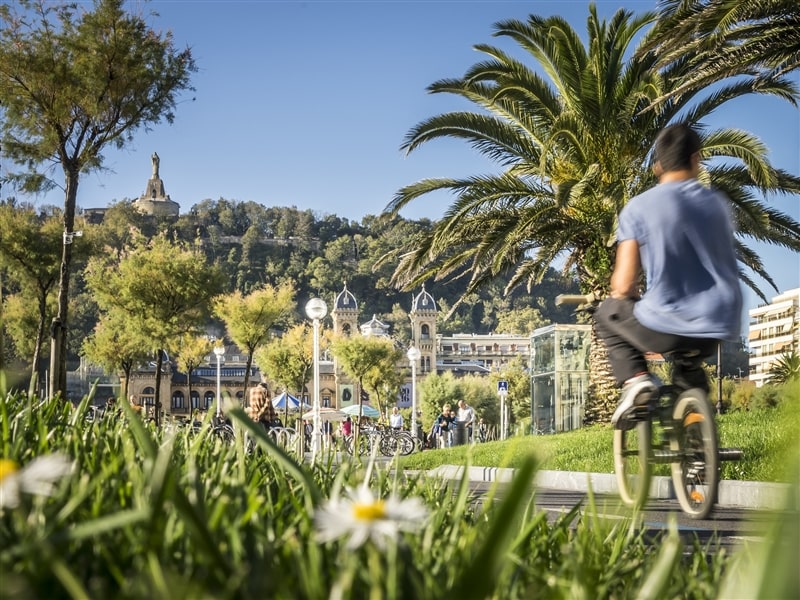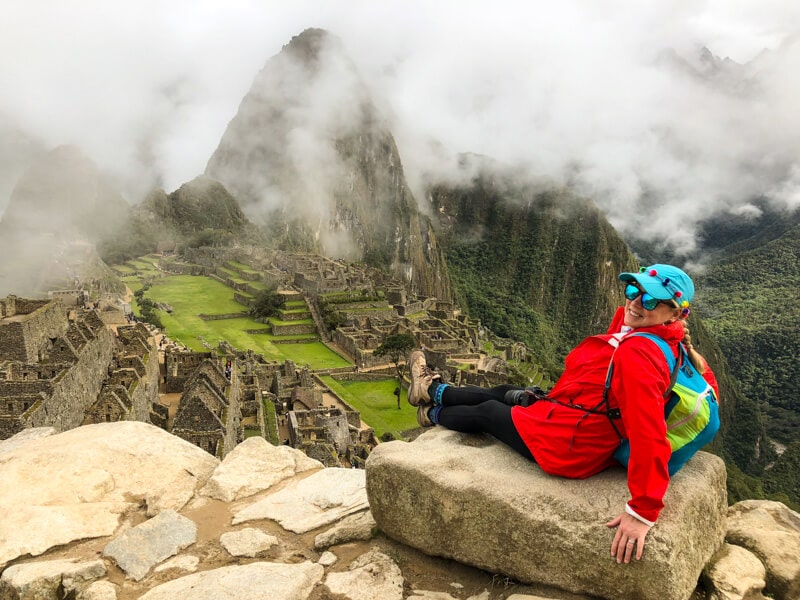
In this way, sustainability can be approached from three different perspectives:
The environmental one, which seeks to preserve ecosystems and biodiversity without having to renounce economic and social progress, always exercising a fair use of natural resources.
The socio-cultural perspective, which emphasizes the cohesion of the population and its stability, focusing on collective rather than individual well-being.
The economic one, which ensures that the activities that seek environmental and social sustainability are developed using economic resources rationally and with the aim of being profitable.
On the other hand, and going a little bit more into the topic that interests us, the World Tourism Organization defined sustainable tourism as “tourism that takes full account of current and future economic, social and environmental impacts to meet the needs of visitors, the industry, the environment and host communities”.
So now the question is, what can we do as individuals to help improve this picture? The answer couldn’t be easier: consciously practice sustainable tourism that helps improve the lives of the communities we travel to as well as conserve their environment.
Steps towards sustainable tourism
RESPECT THE INHABITANTS OF THE DESTINATION YOU ARE GOING TO VISIT
A destination is nothing without its people, without all the people who make it special for one reason or another, so take the inhabitants into consideration, talk to them, listen to them very carefully and try to learn something from each conversation, because they can teach you a lot.
It may be that for different reasons (cultural, religious, etc.) you don’t like what they teach you or that you think you could teach them something too.
If this is the case, do not hesitate to talk to them and tell them about it, but always with respect, kindness and humility. In this way they will surely be happy to listen to you and exchange opinions and wisdom. Remember that knowledge is wealth.
LEARN ABOUT THE CULTURE OF THAT PLACE
Following the line of the previous point, something basic to understand a society and the inhabitants of a certain community is to learn about the local customs and traditions that make each corner of the planet special.
Religion, politics, food, personal relationships, relationships with animals or the environment, music, clothing and many other cultural factors, greatly influence who we are both as individuals and as a collective.
Besides, apart from customs that you will like and find beautiful, there will surely be traditions or other aspects that will be strange to you or that will go against your beliefs or lifestyle, so I think it is better to know them in advance so that, if you come across them face to face, you can face them in the best possible way.
SUPPORTS THE LOCAL ECONOMY
One of the most important factors for the survival of a community, if not the most important, is the economy. Therefore, it is tremendously important that you participate in local businesses by consuming their products in a way that your spending directly benefits them.
You should always make sure that the establishments are ethically produced, that is, that there is no human or animal exploitation at any point in the work chain, that they are environmentally friendly and that they use raw materials with the least possible environmental impact.
If you want to take something with you as a souvenir, bet on local craftsmanship, if you have a kitchen in your accommodation during the trip, buy the food in small shops and, as far as possible, try to consume kilometre 0 and ecological products both in markets and restaurants.
CONSUME MORE GARDEN PRODUCTS
Moderating the consumption of meat and/or fish during your travels or directly changing meat to vegetables, legumes and fruits, especially organic ones, will help reduce our negative impact on the natural environment of the destination we are visiting, as we will consume fewer resources by reducing the demand for products that are proven to harm the environment.
If you are against eliminating meat and fish from your diet during those days, try to at least inform yourself about their origin, as well as the origin of the dairy products and eggs you will be consuming.
The best option is meat from extensively farmed, semi-freed and grass-fed animals, milk from non-over-stimulated and organically fed cows and organic or free-range eggs (both from semi-freed hens).

VISIT LESS CROWDED AREAS
Cities are becoming increasingly saturated with tourists, which often means not only less enjoyment of the destination by travellers but also a loss of quality of life for permanent residents, who see the streets become crowded and rental prices rise, making normal life in the more central areas of the city impossible.
The responsibility is shared. First and foremost by the owners of the rental apartments who, faced with the possibility of earning more money in less time, do not hesitate to rent out their accommodation to tourists. And secondly by the tourists, who often, because they spend less, do not check that the accommodations we book comply with the tourist apartment regulations of the country in question.
Because of this, we have the responsibility to ask ourselves how our behaviour when travelling is affecting the quality of life of the inhabitants of the destination, whether the tourist model that has been implemented in practically the whole world in recent years is ethical and how we could contribute to improving this situation.
My main recommendation is to visit smaller towns, rural destinations or, if possible, areas of difficult access where tourism is still a benefit and not a curse. In this way you will help to revitalise more depressed areas and even areas at risk of abandonment, which are in greater need of people and money.
TAKES CARE OF THE NATURAL RESOURCES OF THE DESTINATION
Natural resources are the most precious asset of any region, so it is essential that we always take care of and respect them, both when we are at home consuming those of the place where we live and when we are travelling using those that “belong” to other people.
While on vacation we tend to relax and waste them even more. For example, taking longer showers than usual, using more plastic than usual (glasses, straws, etc.) and even believing that we have the right to remove some of it, such as sand, shells or stones.
Nobody prevents you from taking a relaxing shower that lasts a few minutes longer, but you must bear in mind that it is necessary to reduce water consumption, that plastic should be avoided as far as possible and that you cannot take anything from the natural areas because you would be degrading the ecosystem of the place.
USES MORE SUSTAINABLE MEANS OF TRANSPORT
As you can imagine, not all means of locomotion are equally polluting and not all have the same impact on the environment. The best options for getting around will always be those that do not require energy of any kind to function, such as our own legs or the bicycle, which only need our own driving force.
However, it is obvious that there are distances that cannot be covered in this way, so another good option would be public transport (metro, tram, bus, train) and the more ecological the better (renewable energies VS fossil fuels).
Car-sharing platforms or the boat in the case of a journey by river or sea are also a possibility, placing private cars that generally do not go to the maximum occupation (which makes the environmental impact multiply) and the plane, in the first places of the most polluting means of transport.
DO NOT LEAVE THE PATHS IDENTIFIED AS SUCH
It may not even have crossed your mind that going off the marked trails in the natural areas may harm the flora and fauna of the place.
But yes, the truth is that it can be quite harmful especially for small animals such as insects and reptiles, for all those animals that feed on them, as well as for birds, since many times they do not nest in trees for different reasons and lay their eggs in small nests on the ground.
This is especially important to keep in mind in protected areas such as nature parks or reserves, where animals and plants are often subject to some kind of special protection to help their conservation.
RESEARCH THE TOURISM COMPANIES YOU’LL BE HIRING
Here we could apply the saying that “not all that glitters is gold”, and that is that many times no matter how good something looks and no matter how much publicity is given to it, it does not mean that it is as good as it should be.
That’s why you have to question whether the company you want to hire to carry out a certain activity or the museum you want to go to meets the standards to be considered a sustainable company.
What are those requirements? Well, the most important ones on an environmental level are that they are respectful of the environment (resource consumption, waste management, etc.), that they do not involve human or animal exploitation (zoos, aquariums, farms…) and that they bring value to the community to which they belong.
Other aspects can also be taken into account, such as not working in overcrowded places, which is very harmful to the environment.
RESPECTS WILDLIFE AND ITS HABITAT
I have left the section on animals for the end not because I consider it the least important regarding Sustainable Tourism, but precisely because I believe that this point has a great influence on almost all the ones I have commented on before (and also because I knew that it would make me a little more involved than usual).
